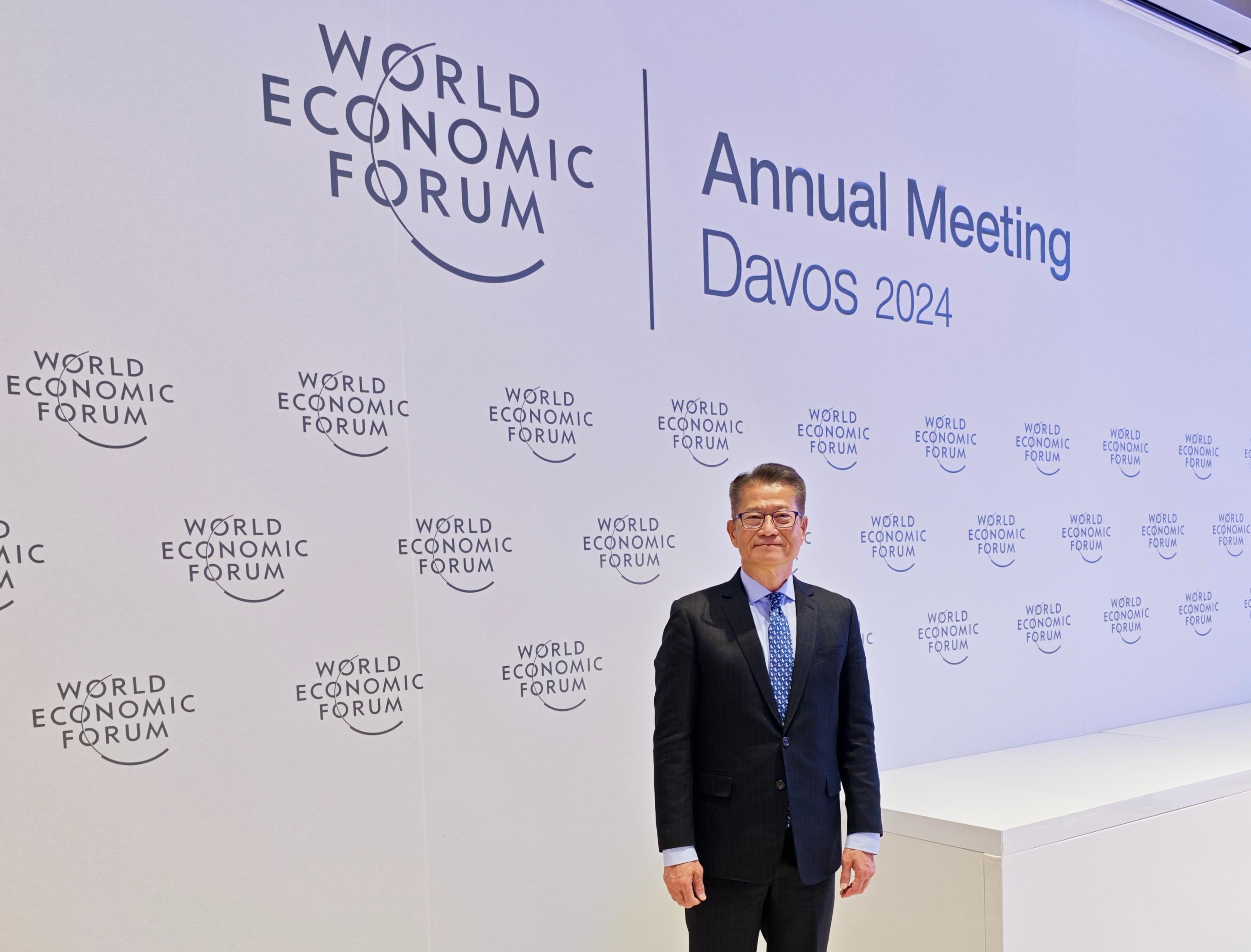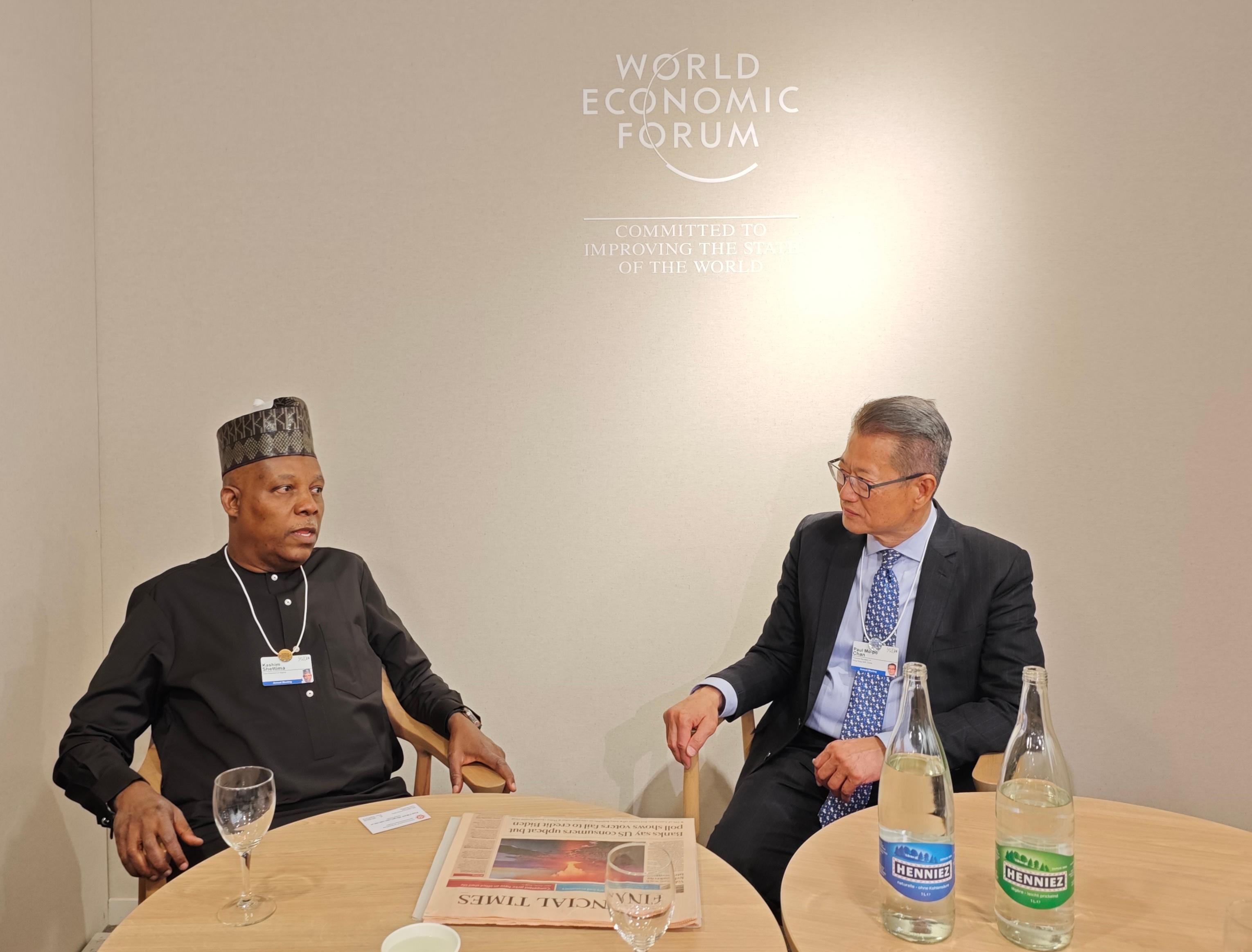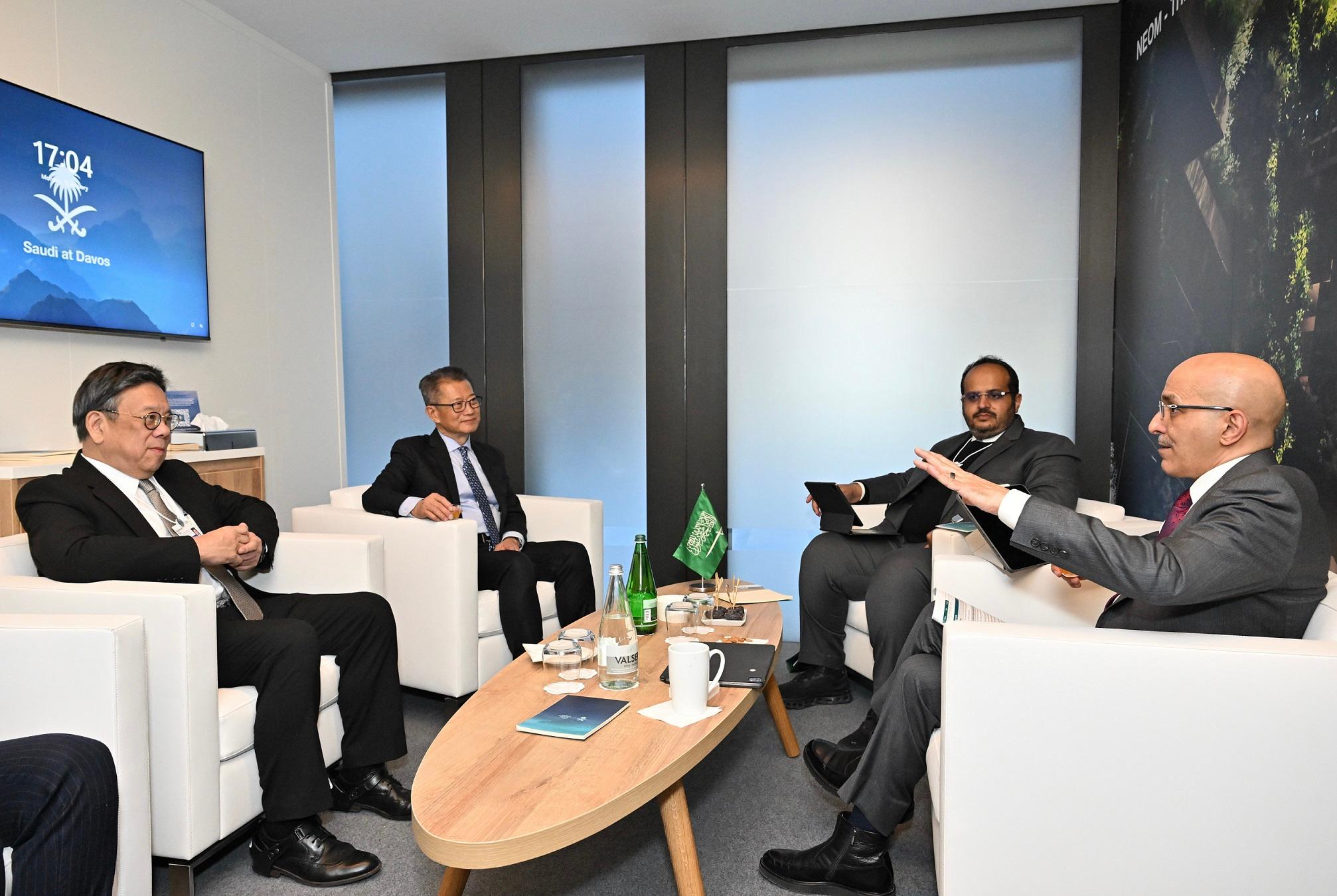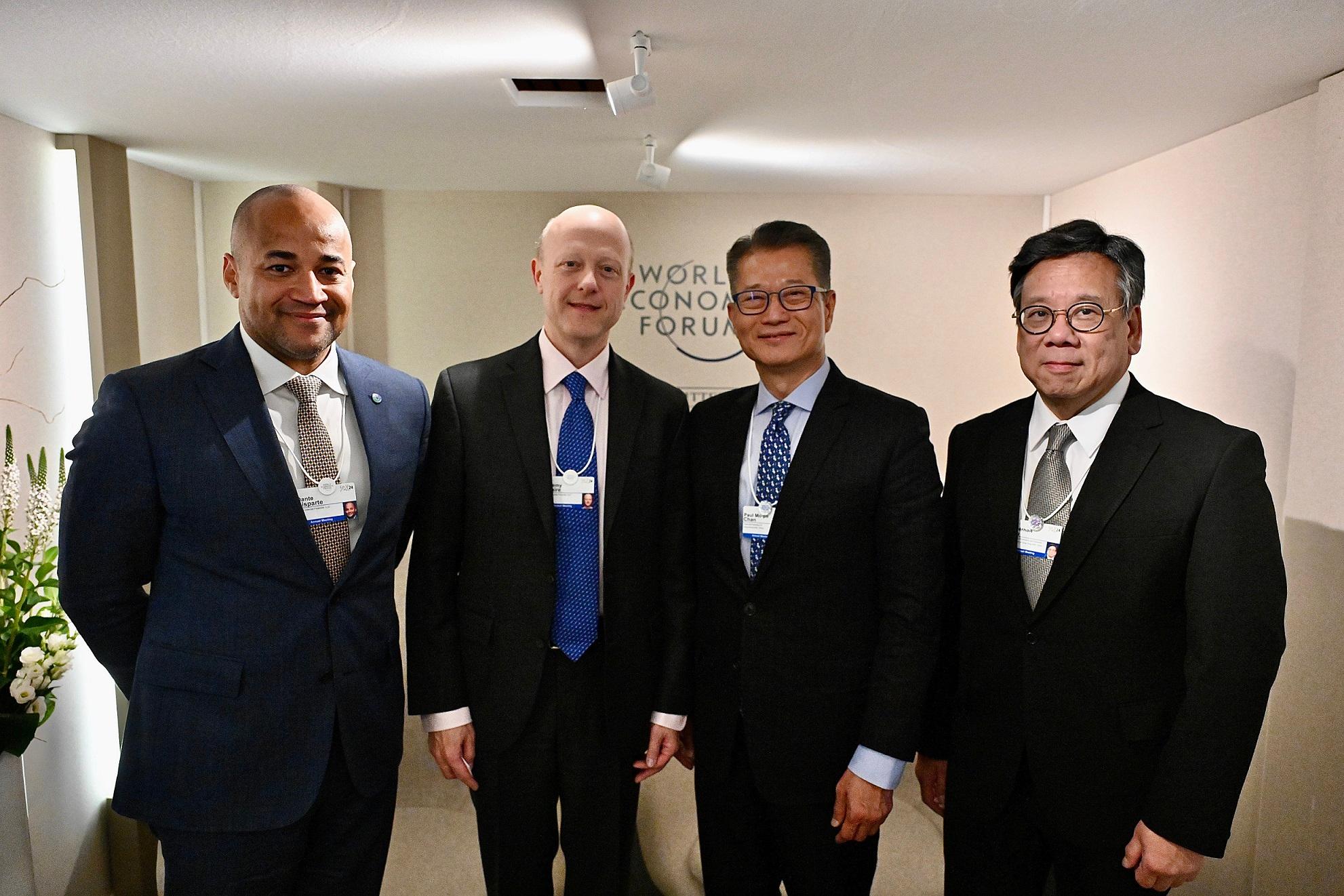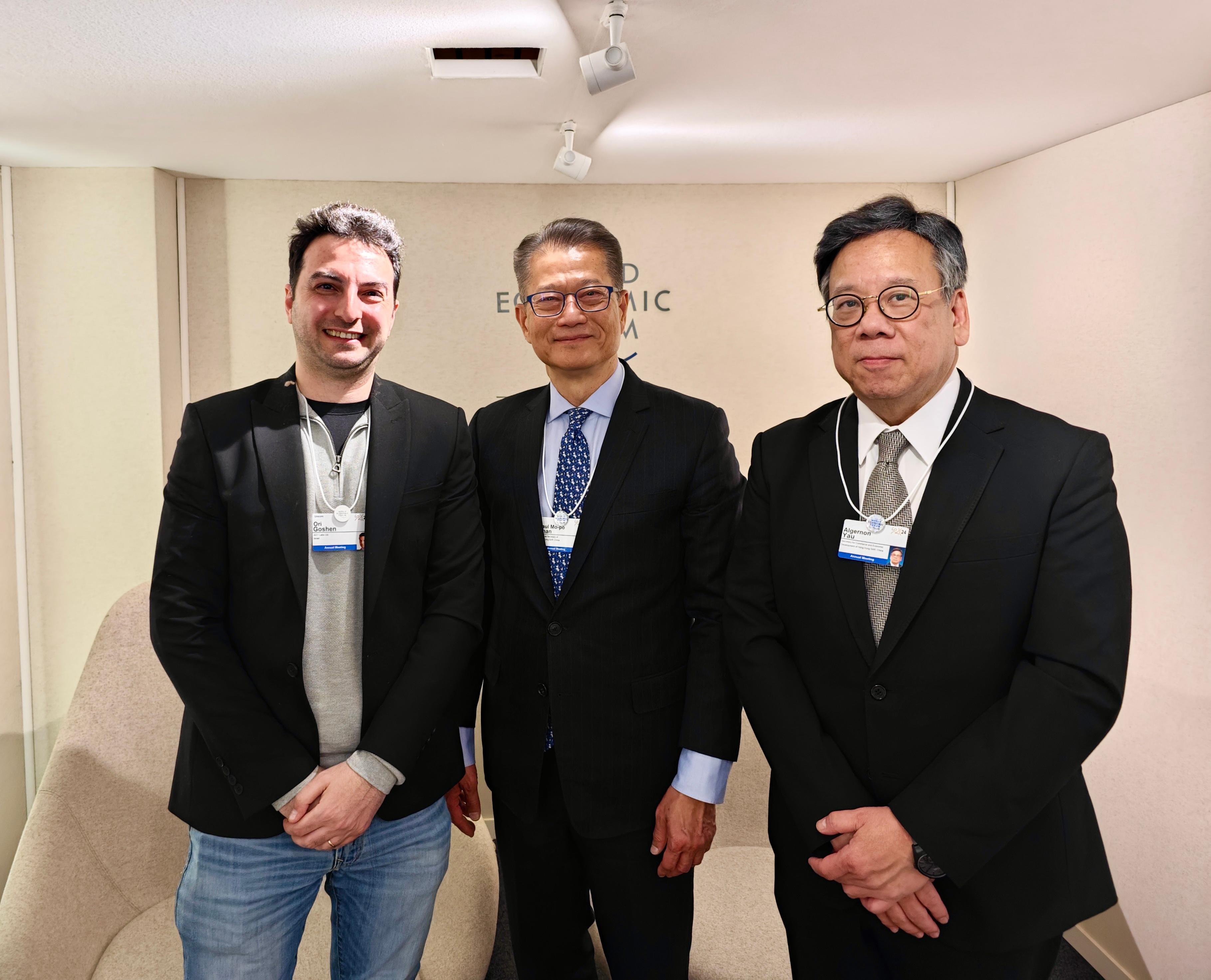FS begins visit to Davos, Switzerland (with photos/video)
​The Financial Secretary, Mr Paul Chan, yesterday (January 15, Davos time) arrived in Davos, Switzerland and began his programme at the World Economic Forum (WEF) Annual Meeting.
Mr Chan, accompanied by the Secretary for Commerce and Economic Development, Mr Algernon Yau, held bilateral meetings with political and business leaders attending the WEF Annual Meeting, introducing to them the latest developments and prospects in Hong Kong, and promoting the city's new advantages and development opportunities.
Among the parties whom Mr Chan met was the Minister of Finance of Saudi Arabia, Mr Mohammed Al-Jadaan. They discussed the prospects of deepening financial cooperation between Hong Kong and the Middle East. Mr Chan pointed out that since his visit to the Middle East two years ago, Hong Kong and Saudi Arabia have achieved encouraging progress in financial cooperation. This includes the Hong Kong Stock Exchange having added the Saudi Exchange as a recognised Stock Exchange last year; the listing of Asia Pacific's first Saudi Arabia exchange-traded fund; and the successful hosting of the inaugural PRIORITY Asia Summit by the Future Investment Initiative. Chan emphasised that Hong Kong, with its unique advantages under the "one country, two systems", serves as an international financial centre connecting the Mainland and the world. He welcomed Saudi Arabia's capital and enterprises to utilise Hong Kong as a high-quality platform to expand into the Mainland and the Asian markets. He also looked forward to enhancing two-way financial and business cooperation with Saudi Arabia.
Mr Chan also met with the Vice President of Nigeria, Mr Kashim Shettima, and exchanged views on issues of mutual interest, such as global economic development.
Mr Chan also met with representatives of two companies engaged in fintech and artificial intelligence (AI) respectively. One is the issuer of the world's second largest stablecoin. Mr Chan stated that since the Hong Kong Special Administrative Region Government announced the Policy Statement on the Development of Virtual Assets in Hong Kong in 2022, the market response has been positive, with many digital assets and third-generation Internet companies having settled in Hong Kong. He said that Hong Kong is pressing ahead with developing digital assets in a prudent and orderly manner, and is consulting the public on regulating stablecoins with a view to setting an appropriate regulatory framework and promoting the responsible and sustainable development of the industry. He welcomed fiat-based stablecoin companies to set their foot in Hong Kong to provide more innovative and convenient financial services to the community.
In addition, he also met with the founder of an Israeli unicorn in AI. Mr Chan pointed out that Hong Kong has strong scientific research abilities, and has put in substantial resources to develop AI as an industry, including the establishment of an AI Supercomputing Centre, and promoting orderly cross-boundary data flow, etc. They have provided support in computing power, data and other elements for the development of AI in Hong Kong. Mr Chan welcomed relevant companies to make use of Hong Kong as a platform to open up the Asian market.
In the evening, Mr Chan attended the welcome reception hosted by the WEF. He will continue his programme in Davos today (January 16, Davos time).
